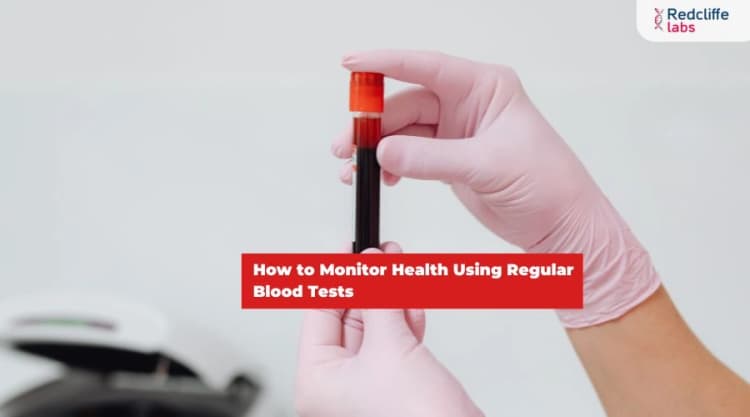This test evaluates stool samples for the presence o...Read more
Stool
Unlock special
discount on
this package
Login to Unlock 🔓
test Instructions
NABL Accredited lab*

Booking Benefits Unlocked Worth FREE 799

Report Consultation

Diet Plan
*Available once your report is generated.
At Redcliffe Labs, we have a single goal: to give India its right to quality diagnostics.
Customers served
Tests Processed Everyday
Cities
Collection Centres
World Class In-house Labs
Home Collection Experts
14 Test Parameters
Stool Routine
14 PARAMETERS INCLUDED
14 PARAMETERS INCLUDED
- Blood
- Cyst
- Epithelial cells
- Fat Globules
- Form & Consistency
- Mucus
- Ova
- Pus Cells (WBC)
- Reaction (pH)
- Red blood cells
- Stool Colour
- Trophozoites
- Undigestive Material
- Worms (Adult/Segment)
Top Booked Health Checkup Packages
Reports in 12 hours
|Parameters 94
Reports in 12 hours
|Parameters 89
Reports in 12 hours
|Parameters 96
Reports in 12 hours
|Parameters 96
Reports in 12 hours
|Parameters 90
Verified by Medical Expert

WRITTEN BY
Sheena Mehta

MEDICALLY REVIEWED BY
Dr. Pradeep Lodha
Table of Content
Introduction to Stool Routine Test
The stool routine examination analyses faecal matter to identify an underlying cause of gastrointestinal disorders. While many gut bacteria are essential for the digestive process, some bacteria parasites can cause internal infection. The test helps detect infections in your stomach, poor absorption of nutrients, or any other medical condition, such as gastrointestinal cancer. Your doctor will suggest the stool routine test if they find symptoms suggestive of the same, such as nausea, pain in the abdomen, loss of appetite, vomiting, diarrhoea, fever, blood in stool, and mucus in the stool. This test is non-invasive and doesn’t involve any risk.
The three broad categories of stool samples include physical examination, chemical examination, and microscopic examination. The doctor analyzes these three broad categories or considers them while examining a stool sample's routine examination.
The stool routine examination helps detect the presence of disease-causing bacteria or any abnormalities. If your doctor has suggested a stool routine test based on your symptoms, you need not delay. Book the stool routine test from Redcliffe Labs. You can schedule the sample collection and submit it to our certified laboratory for microscopic examination. So, book a high-quality stool routine test from Healthy India ki trusted lab, Redcliffe Labs.
Test Details:
| Also Known As | Faecal sample, stool culture test, and stool sample test. |
| Purpose | This helps detect stool abnormalities & diagnose conditions affecting the digestive tract. |
| Preparation | Do not drink or smoke before the test |
| Fasting | No fasting is required. |
| Get Reports Within | 11 hours |
| Actual Cost | INR 391 |
| Discounted Cost | INR 229 |
What are the parameters of a stool routine examination?
Faecal matter or stool samples are analyzed based on microscopic, macroscopic, and chemical examinations. These parameters are assessed during a stool routine examination:
Macroscopic Examination or Physical Examination
- Form
- Color
- Consistency
- Presence of blood
- Presence of mucus
Chemical examination
- Occult blood
- pH of sample
- Water content
- Lipids
- Reducing substances
- Urobilinogen
Microscopic Examination
- Red blood cells
- Pus cells
- Vegetative Cells
- Trophozoites
- Cyst
- Ova
- White blood cells
- Epithelial Cells
- Microorganisms: bacteria, yeast, viruses, and fungi
What is the purpose of the stool routine and microscopic examination?
The stool routine and microscopic examination, also known as stool culture or stool sample, is a crucial diagnostic test that deeply analyses the health of the digestive system. The primary purpose of the stool routine test is to detect abnormalities, infections, and gastrointestinal tract disorders. The microscopic test reveals the visual inspection of the stool sample, considering aspects such as colour, consistency, and any visible abnormalities like blood or mucus.
The stool test may be recommended for various medical conditions, allowing for timely and appropriate treatment. Stool routine examination helps to find out the cause of the digestive tract, which can be:
- Gastric and colon cancer
- Infections in the gastrointestinal tract
- Inflammatory bowel disease
- Pancreatic insufficiency
- Poor absorption of fats
- Digestive tract bleeding
- Haemorrhoids
No matter the reasons, if your healthcare provider has suggested the stool routine and microscopic examination test, you need not delay. Early detection can help detect harmful microorganisms such as yeast, parasites, or fungi that may exist in the body.
What is the procedure for the stool routine and microscopic examination test?
The stool routine and microscopic examination test procedure are simple and risk-free. Below is a step-by-step procedure for each.
- Sterile and clean up the stool sample container.
- Urinate first to avoid contamination of your stool sample collection.
- Wear gloves to collect a sample at home.
- Schedule your home sample collection.
- Sample processing in a state-of-the-art, cum certified lab by an expert
- Get a personalized report within 10 hours.
Note: Wash your hands before and after stool sample collection to prevent infection. Label a stool sample container before handing it over to the phlebotomist.
How can you prepare for a stool sample and microscopic examination?
A stool sample is used to perform a stool routine test and detect conditions affecting the digestive system. The stool routine test evaluates a patient’s stool to detect any abnormalities such as inflammatory bowel disease, anal fissures, colon or gastric cancer, haemorrhoids, and more.
The stool routine test does not require preparation, except to remember a few instructions for accurate results.
- Diet: Although the test doesn’t require fasting, you should still consult your doctor about what items to avoid before the stool culture test.
- Medications: Let your healthcare provider know if you are taking any prescribed or non-prescribed medications or have a medical history so that he can make an informed diagnosis. Besides, he may ask you to stop or continue taking medicines before the test, as their consumption can affect the results.
- Travel history: If you have recently travelled and got infected during travel, let your doctor know. This will help him check for a microbial infection.
- Menstruation: Do not opt for a stool routine test unless your menstruation is over.
If you have any doubts or concerns regarding the test preparation, kindly discuss them with your healthcare professional.
When do I need a stool routine test?
Your gut microbiome is composed of healthy and unhealthy microbes. You may need a stool routine test if you have stomach problems. The test helps detect a virus, bacteria, or germs in your poop that might be making you sick.
Your doctor will suggest a routine stool test if you have the following symptoms, such as:
- Pain in the abdomen: Abnormalities in the stomach may cause pain in the abdomen. Hence, your doctor may advise you to take the test to detect the actual cause of the problem and initiate treatment accordingly.
- Loss of appetite: Pain in the abdomen alone cannot determine if you need a routine stool test. Your doctor may suggest the test to determine whether the decreased appetite is due to an underlying condition.
- Nausea and vomiting: The stool sample culture test may also be suggested when severe nausea or vomiting lasts more than a few days.
Besides diarrhoea and fever, there are other conditions for which your doctor can suggest a stool routine examination test, which is as follows:
- Blood in the stool: This indicates bleeding in your digestive tract. A faecal occult blood test (FOBT) is performed to check for hidden (occult) blood in the stool.
- Mucus in the stool signals severe conditions, such as Crohn’s disease, certain cancers, and ulcerative colitis.
No matter the reason, if your healthcare provider has suggested a stool routine test based on your symptoms, risk factors, and other reasons, getting tested in time will evaluate your gut health and take appropriate measures accordingly.
What does the routine stool test report indicate?
The reference value of a stool routine test can vary depending on several factors, such as age, gender, medication, medical history, and the laboratory where the sample is tested. Your doctor will make an informed diagnosis based on your specific report.
Microscopic Examination
- Abnormal stool colours are green, red, pale, yellow, maroon, and black.
- Abnormal consistency and form of stool mean it is liquid and dry stool due to diarrhoea and constipation.
- Blood and mucus also indicate an abnormality in your digestive tract.
Chemical Examination
Occult blood stool test samples show blood in the faeces, which is not easily seen during a microscopic examination.
If the chemical examination of the stool is positive, consult your doctor.
Microscopic examination
The RBCs and WBCs, cysts, fats, and pathogenic microorganisms are not visible (absent) in stool samples.
What if the routine stool test is positive?
A positive routine stool test means the presence of harmful microorganisms, such as bacteria, fungi, or parasites. Besides, it could also indicate an underlying health condition like cancer. However, your doctor may suggest some additional tests to treat the abnormalities.
What are the risk factors associated with the stool routine test?
A stool culture test detects any underlying disease or other medical conditions for which the patient requires treatment or hospitalization. The test is simple and hassle-free to detect any kind of harmful germs, like fungi, bacteria, parasites, or viruses.
The stool routine test is associated with no or minimal risk. It is simple and hassle-free. Make sure you use a special container to collect a stool sample at home. However, false positives or false negatives can occur.
What is the stool routine test normal range?
The stool routine test is in the normal range, which means the amount of reducing substance in the stool is less than 0.25 mg/dL. Your doctor may use the word suspicious if the amount is between 0.25 and 0.5 mg/dL. And if the test result is > 0.5 mg/dL, it indicates abnormalities in your stool.
What are the common symptoms related to a stool routine test?
A stool routine test identifies pathogens such as bacteria, viruses, fungi, and parasites. If these microorganisms are present in your gut, they can make you sick if they are not treated on time. Some common signs and symptoms related to the stool routine test include:
- Pain in the abdomen
- Symptoms of diarrhoea for more than three days
- Severe stomach pain
- Vomiting and feeling nauseated for more than three days.
- Having mucus from excess fat in your stool
- Fever that lasts more than three days.
Book Stool Routine Test at Affordable Stool Routine Price!
Your gut health reflects your health. It is a home of countless good and bad bacteria. When you experience a range of symptoms, such as nausea, bloating, constipation, and even inflammation, may be a sign of an underlying condition. Hence, a routine stool test can help detect the presence of microorganisms, such as parasites, fungi, or viruses, and thus, make you sick. The stool routine test price with Redcliffe Labs is INR 229. If suggested, book your stool routine test now with Redcliffe Labs at an affordable rate. Enjoy the comfort of home sample collection and get accurate test reports within 10 hours.
Stool Routine Test Cost in Different Cities - Redcliffe Labs
| City Name | Discounted Price |
| Delhi | ₹229 |
| Ahmedabad | ₹229 |
| Mumbai | ₹229 |
| Bangalore | ₹229 |
| Noida | ₹229 |
| Pune | ₹229 |
| Lucknow | ₹229 |
| Hyderabad | ₹229 |
| Chennai | ₹229 |
| Gurgaon | ₹229 |
| Jaipur | ₹229 |
| Faridabad | ₹229 |
| Indore | ₹229 |
| Patna | ₹229 |
Note: We also offer Stool Routine Test PAN India. Please call the number 8988988787 to check the availability of our services in your area.
Conclusion
A routine stool test gives doctors accurate, useful information, helping them inform patients about their gastrointestinal disease and treatment. If your stool routine test report is negative, it is normal. However, if it is positive, it indicates the presence of certain bacteria. So, your doctor may suggest additional tests for further diagnosis, followed by initiating the medicines and treatment accordingly.
5 Simple Steps to Manage Your Health with Redcliffe Labs
Quick, Simple & Convenient; trusted care delivered to your doorstep.

Start Your Online Booking
Open the Redcliffe Labs website/app. Select the test or package and enter your details. Schedule the service for your preferred slot.

Live Tracking
Stay updated with real-time tracking for a smooth and timely home sample collection.

Sample Collection
Our certified experts ensure a smooth, hygienic, and fully compliant sample collection experience.

Doctor-Verified Smart Reports
Every report is clinically checked by expert doctors and shared with smart, actionable insights.

Your Health Journey Continues Post Reports
Consult with our expert medical team to get actionable insights to improve your health.
Nearby Labs(9)
Redcliffe Labs Noida

MC-5280
Redcliffe Collection Center
Redcliffe Collection Center
Redcliffe Collection Center
Redcliffe Collection Center
Redcliffe Collection Center
Redcliffe Collection Center
Redcliffe Collection Center
Redcliffe Collection Center
Frequently Asked Questions
What is a routine stool test?
What is a normal, routine stool examination report?
What is detected in a stool test?
Why is a routine stool test performed?
How is a routine stool test done?
What is the price of a routine stool test?
How do I prepare for a routine stool test?
What can a routine stool test detect?
Are there any dietary restrictions before a stool test?
How long does it take to get results from a routine stool test?
How often should I get a routine stool test?
Can I book a Stool Routine & Microscopic Examination near me?
Can I book a home collection for a Stool Routine & Microscopic Examination?
Health Articles & Blogs
My Health
Stay informed with our expert health articles and blogs. Explore comprehensive guides on diseases, nutrition, preventive care, and wellness tips to help you make better health decisions.
What is SGPT in Blood Reports? Everything You Need to Know

Capsicum (Shimla Mirch) 101: Benefits, Nutritional Value, Uses and More

Normal Calcium Levels: Range, Symptoms & Causes of Imbalance

Home Remedies to Get Rid of Cold in Babies: Safe & Natural Relief for Infants
Discover safe home remedies to get rid of cold in babies. Learn natural and gentle relief methods to ease cough, congestion, and cold symptoms in infants.

How Often Should You Get a Full Body Health Checkup?

Understanding BUN Test Normal Range & Results: High, Low & Normal
Understanding BUN test normal range and results helps evaluate kidney health. Learn what high, low, and normal BUN levels mean and when to get tested.

What Level of Lymphocytes Is Dangerous?

How to Monitor Health Using Regular Blood Tests?
Explore My Health
